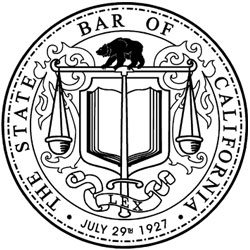Domestic Violence in Child Custody Cases
5.24.21 | Child Custody
The consequences are particularly severe when domestic violence is a contributing factor in child custody disputes. In such situations, the family court must consider the presumption of the child’s best interests while addressing the needs of all parties, including siblings. Custody decisions often involve hearings where conflicts are examined, and courts may require participation in a treatment program to mitigate the potential danger. The history of the parties involved and the severity of the issue are crucial parts of the decision-making process. Seeking advice from Huggins Law Office can help establish a solid attorney-client relationship, ensuring you are well-informed about your rights. Understanding the legal landscape, including the dynamics of visits and the impact of divorce, is essential for navigating domestic violence in child custody cases and working toward the completion of a fair and just resolution.

How Do Domestic Violence Issues Affect Custody Litigation in Nevada?
In child custody litigation in Nevada, domestic violence allegations can significantly influence the legal process. As an experienced Las Vegas Child Custody Attorney, I’ve seen many cases where one parent accuses the other of abusive behavior. It’s crucial to recognize that these claims may reflect actual abuse or be used strategically to gain custody advantages. Nevada courts take domestic violence allegations seriously, prioritizing the safety and well-being of the children involved.
The court must evaluate the potential harm to children, considering their emotional, mental, and physical well-being. Attorneys play a vital role in advocating for the child’s safety, ensuring the right decisions are made. The legal process can be emotionally challenging, but protecting a child’s future stability is essential. Domestic violence allegations should be handled with care, as they can lead to changes in custody arrangements, visitation rights, and, ultimately, the children’s lives.
Evidence That Courts Look For
Credible evidence is necessary to establish domestic violence in a custody case. Types of evidence that are frequently encountered include:
- Restraining orders and police reports
- Injury-related medical records
- Testimonies from witnesses or experts
- Emails, text messages, or other forms of communication that exhibit abusive behavior
A strong legal advocate can effectively present this evidence to safeguard the interests of the victim and the child.

Protective Measures for Children and Victims
Courts may implement protective measures to guarantee the safety of the non-abusive parent and the children. These may encompass:
- Supervised visitation: The child may only be seen by the abusive parent in a supervised environment.
- No-contact orders: Preventing the abusive parent from interacting with the other parent or child.
- Therapeutic interventions: Requiring the abusive parent to participate in counseling or anger management programs.
These measures mitigate risks while preserving the child’s relationship with the non-abusive parent.
Challenges for Victims in Custody Battles
Custody disputes frequently present distinctive obstacles for victims of domestic violence:
- Fear of retaliation: The abusive parent may employ intimidation tactics to influence proceedings out of fear of retaliation.
- Financial dependence: Acquiring robust legal representation may prove challenging due to inadequate resources.
- Emotional trauma: The victim’s mental health issues may be further exacerbated by the stress of legal disputes.
Overcoming these challenges necessitates the assistance of legal professionals and advocates for domestic violence.

Victims’ Guide to Navigating Custody Cases
Maintain a comprehensive record of all events. Document incidents, including the date, time, and nature of the maltreatment.
- Seek assistance: Participate in local domestic violence organizations to receive emotional support and guidance.
- Collaborate with an attorney: Select an attorney with experience in custody cases involving domestic violence.
- Safety should be prioritized: Ensure a safety plan is in place for you and your child during and after the legal procedure.
Conclusion
The child’s protection and well-being are the primary concerns of the law, even though domestic violence complicates child custody cases. In such situations, the testimony of witnesses, along with accumulating evidence, is crucial for achieving resolution. Seeking the help of a divorce attorney experienced in family court can provide clarity and control during hearings. Whether pursuing a custody order, joint custody, or a restraining order against an abuser with a prior conviction, understanding your rights is critical. With determination, you can address issues and navigate conflicts while working toward settlement and protecting your child’s safety. Remember, you are not alone—resources are available to support you through this challenging time.
Frequently Asked Questions
Is it possible to appoint a guardian ad litem in cases of domestic violence custody?
Indeed, courts frequently designate a guardian ad litem (GAL) to advocate for the child’s best interests. The GAL investigates the case, interviews the parties involved, and provides the court with recommendations.
How should I respond if my child discloses maltreatment by the other parent?
Assume the gravity of their disclosure and meticulously record all of their statements. Inform your attorney immediately to take legal action and report the maltreatment to the authorities.
What is the average duration of a custody case that involves domestic violence?
The timeline depends on the case’s complexity, the evidence involved, and the court’s schedule. While the case is being resolved, emergency orders can offer temporary solutions.
Is it possible for custody arrangements to be altered if new evidence of abuse is discovered?
Indeed, custody arrangements may be altered if new evidence indicates that the child is at risk due to the current arrangement. A motion to the court to review the custody agreement may be necessary.
What actions should I take if I am concerned about retaliation in a custody dispute?
Inform the court and your attorney of any intimidation or threats. It may be beneficial to request a protective order or other legal action. Ensure you and your infant have a safety plan at all times.
Is it possible for a toxic parent to be compelled to participate in counseling or rehabilitation?
Indeed, courts frequently require counseling, anger management programs, or parenting courses for abusive parents to grant visitation or custody.
What is the process for relocation requests in custody cases involving domestic violence?
A parent who is fleeing domestic violence may request to relocate with their child to ensure their safety. In such a situation, the reasons for relocation, the effect on the child, and the feasibility of maintaining the other parent’s relationship with the child are all factors that courts consider during the hearing. Consulting with a lawyer can help navigate these complex issues and ensure that your rights and the child’s best interests are protected.
Is mediation permissible in domestic violence cases?
Mediation is generally discouraged in domestic violence cases due to the potential for the victim to be placed in a vulnerable position. Mandatory mediation obligations are waived in numerous jurisdictions concerning domestic violence cases.
What is the function of child protective services (CPS) in these instances?
To ascertain whether the child is in peril, Child Protective Services (CPS) may investigate allegations of abuse. Their discoveries can significantly impact court decisions concerning custody and visitation.
How does the court guarantee that the child's voice is heard?
The court may appoint a guardian ad litem, child advocate, or therapist to represent the child’s interests and provide the judge with their perspective, ensuring their voice is heard without direct involvement in the proceedings.
Compassionate Legal Advocacy for Domestic Violence in Child Custody Cases
At Huggins Law Office, we understand the significant obstacles that parents encounter when child custody disputes interact with domestic violence. Such situations often involve complex issues where your child’s welfare and your safety are at stake. Judges carefully evaluate each incident, the actions of each partner, and the overall conflict to make decisions that uphold the child’s best interests. Our team is dedicated to offering the legal expertise and compassionate support you need during this challenging period, ensuring your rights and your child’s well-being remain the primary focus.
Our lawyers bring a wealth of experience in addressing life-altering custody disputes involving domestic violence. We are here to guide you through every step, including securing protective orders, presenting evidence of abusive acts, and advocating for custody arrangements that prioritize safety and stability. Whether you seek sole custody, supervised visitation, or modifications to an existing agreement, we will help you ask the right questions and effectively address critical legal matters.
Huggins Law Office is committed to providing unwavering advocacy and trusted legal counsel. If you or someone you know is navigating the complexities of domestic violence in a custody dispute, contact us today to arrange a consultation. We are here to assist you in safeguarding your child and ensuring your family has a brighter, safer future.




